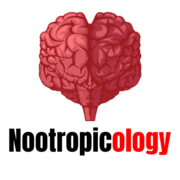Glutathione: Is It Worth Trying as a Nootropic?

In recent years, the use of Glutathione Powder as a nootropic supplement has been on the rise.
It is sold by companies such as LifeExtension and NootropicsDepot and it is often marketed for its antioxidant properties.
However, there are not many studies that have looked into whether or not this supplement actually provides any cognitive benefits to people who take it.
In this article, we will explore some of the possible reasons why taking glutathione powder could be beneficial to your brain health and what you should know about using it safely before trying it out yourself.
So without further ado, let’s look at why Glutathione could be a useful nootropic to take if you want to improve your brain function.
What is Glutathione?
Glutathione is a substance that is naturally produced within the body and it has been called “the mother of all antioxidants” as it helps with detoxification.
It also plays a role in making sure that cells are healthy, repairing DNA damage, and preventing cell death from occurring by protecting against free radicals which can cause oxidative stress on our bodies if there isn’t enough glutathione present.
Glutathione is used by the body to make sure that there are enough antioxidants available in order to fight oxidative stress, but many of us do not get optimal levels due to our lifestyles and diet choices.
This can lead to impairments in cognitive function as well as other health problems such as atherosclerosis and neurodegenerative diseases.
For this reason, many people are now taking glutathione supplements in order to increase their antioxidant levels but do it really work?
What Does the Research Say?
There is some evidence that suggests that organic forms of Glutathione (GSH) could be useful as a nootropic supplement for people who want to improve their brain function.
In a study, older adults were given either GSH or placebo for 16 weeks and results showed that those who took the glutathione performed better on cognitive function tests than those who hadn’t.
The researchers concluded by saying “Oral GSH supplementation was effective at reversing age-related cognitive decline in healthy older adults.”
In another study using animal models, it has been suggested that glutathione could be useful for improving memory and learning ability as well as protecting the brain against oxidative stress caused by neurotoxicity (which can occur when substances such as mercury bind with glutathione).
In this study, it was found that the glutathione actually restored many of the cognitive dysfunctions caused by neurotoxicity and it reduced oxidative stress in order to protect against further damage.
The researchers concluded, “These findings highlight a novel mechanism for GSH neuroprotection following [mercury] exposure and suggest that GSH preconditioning may be a promising neuroprotective strategy against neurotoxicity-mediated oxidative stress.”
In both of these studies, there was no evidence to suggest that the glutathione supplementation had any negative effects on cognition and it actually helped improve cognitive function.
What are the benefits of Glutathione?
There are many benefits associated with taking Glutathione as a nootropic supplement and these can be very useful for people who want to improve their brain function.
These include:
- Helping reduces oxidative stress which has been linked to the development of neurodegenerative diseases such as Parkinson’s disease, Alzheimer’s disease, and multiple sclerosis.
- Protecting against the damage caused by neurotoxicities such as mercury poisoning or other environmental toxins which could affect brain health.
- Decreasing levels of homocysteine in the body, helping to reduce cardiovascular risks such as atherosclerosis and stroke which can also affect cognitive function.
- Helping increase white blood cells in order to help fight infection.
- Increasing the production of natural killer cells which are important for fighting off cancerous tumors and improving immune system function.
- Improving mood by helping produce dopamine, serotonin, and norepinephrine in the brain can help improve cognitive functions but also affect our psychological health too.
It's worth noting that some people may experience side effects when taking glutathione. Let's take a closer look at those below.
Are There Any Negatives?
The only downside to taking glutathione for cognitive benefits is that it can cause some unpleasant side effects such as nausea, vomiting, and diarrhea.
However, this only happens in a very small percentage of people who take these supplements so it isn’t something to be overly concerned about.
In addition, there have been no studies that show that there are any negative effects on people who take glutathione for cognitive benefits.
Glutathione is an antioxidant that has many health benefits in the body and it could also be useful as a nootropic supplement, but make sure to talk to your doctor before using it yourself.
This will ensure that you know how much you should be taking and what the potential side effects may be.
If you’re interested in using glutathione as a nootropic, make sure to take the organic form and start at low dosages before building up to avoid any side effects.
You should also consider taking it with an absorption support supplement such as alpha-lipoic acid or NAC (which will improve its uptake within the body) and be sure to drink plenty of water throughout the day, especially on an empty stomach.
Glutathione's role in cognitive function
Glutathione helps to protect and regenerate neurons in the brain which can help improve cognitive function.
Glutathione protects against neurotoxicities such as mercury poisoning or other environmental toxins which can affect levels of glutathione within the body, leading to oxidative stress and impaired cognition.
It has also been shown to increase the production of natural killer cells (important for fighting off cancerous tumors) and improve immune system function to help with overall cognitive health.
People also take it for its mood-boosting properties which can affect cognitive function too.
How does glutathione work to improve cognition?
As briefly mentioned above, glutathione helps protect, regenerate and repair neurons which are important for cognitive function.
It does this by protecting the mitochondria within cells from oxidative damage caused by free radicals (by acting as an antioxidant) but also because it has been shown to strengthen neuronal membranes too.
Glutathione is not only useful in helping improve cognitive function but it can also help improve mood which in turn contributes to cognitive function.
As well as helping produce dopamine, serotonin and norepinephrine (known as the ‘happy neurotransmitters’) glutathione has been shown to increase levels of BDNF (brain-derived neurotrophic factor), an important growth hormone for neural tissue.
All in all, taking glutathione as a nootropic can be useful for protecting and repairing neurons which is important for cognitive function.
Who is Glutathione good for?
Glutathione is good for anyone who wants to improve cognitive function and protect themselves from neurotoxicity or environmental toxins.
If you’re interested in boosting mood, it may also help with that too although there are other supplements which can be used more specifically for this purpose such as Rhodiola Rosea.
Those looking to use glutathione for its antioxidant properties should know that it is not a general antioxidant and does not have the same effect as other antioxidants such as vitamin C.
It’s also good for anyone who wants to improve their immune system function which can help with cognitive health too by protecting against illnesses or infections of the brain, eyes or ears.
In particular, those with autoimmune conditions such as Lupus and Parkinson’s disease may find it particularly useful.
However, just like with any health supplement or nootropic, you should always check with your doctor before using glutathione to make sure that there are not any contraindications for use (such as current medical issues) and ensure the dosage is appropriate.
Conclusion
Glutathione is a useful supplement to use as part of your nootropic stack.
It can be particularly helpful for protecting and repairing neurons which are important for cognitive function.
It also has mood-boosting properties which contribute to cognitive function too.
You can use glutathione as a standalone supplement or combine it with other nootropics such as Rhodiola Rosea for an even greater effect on your cognition and brain health.
